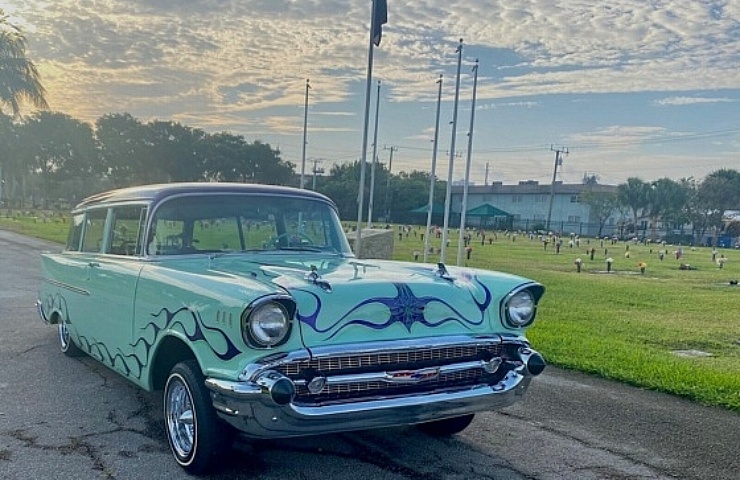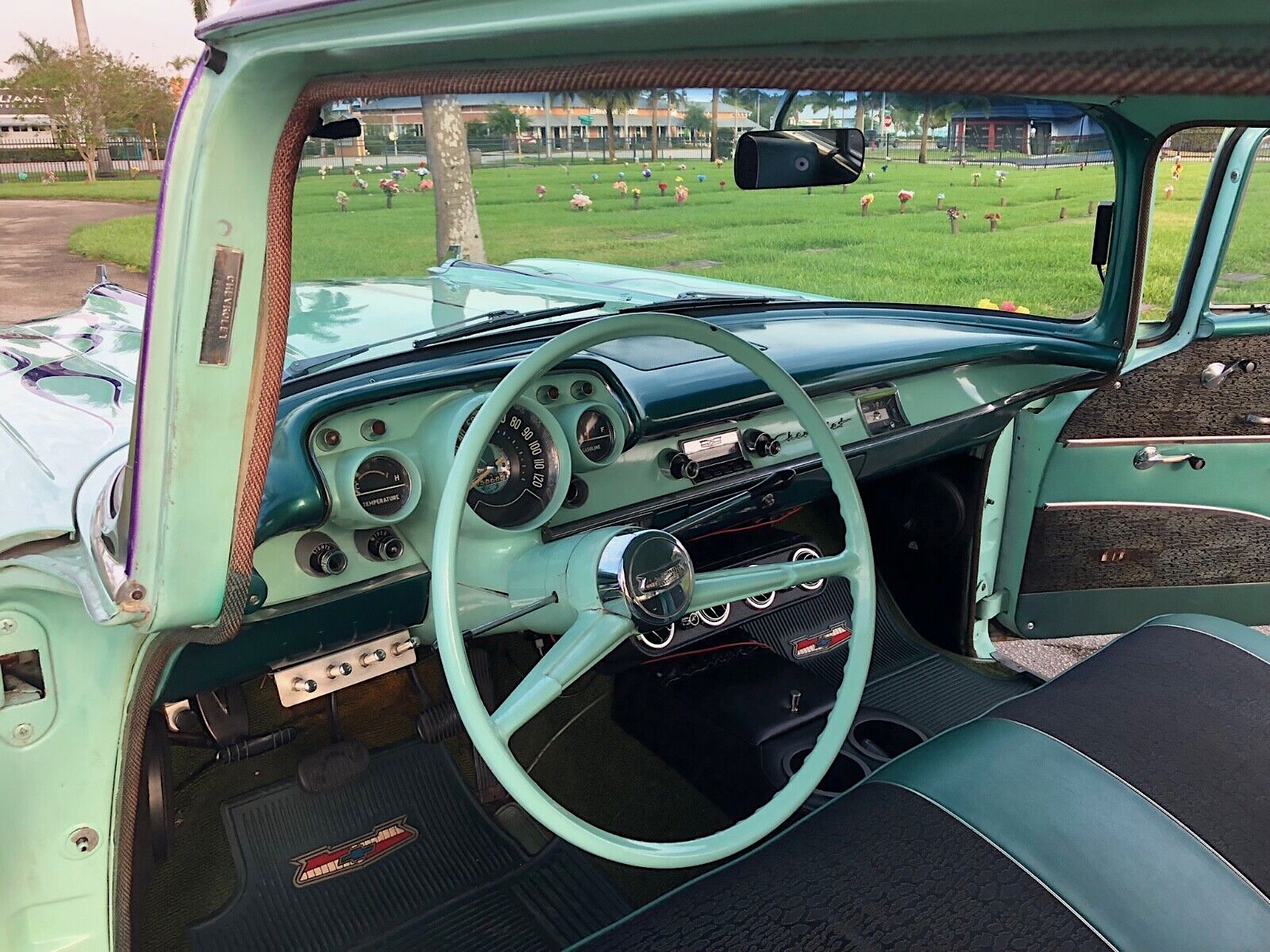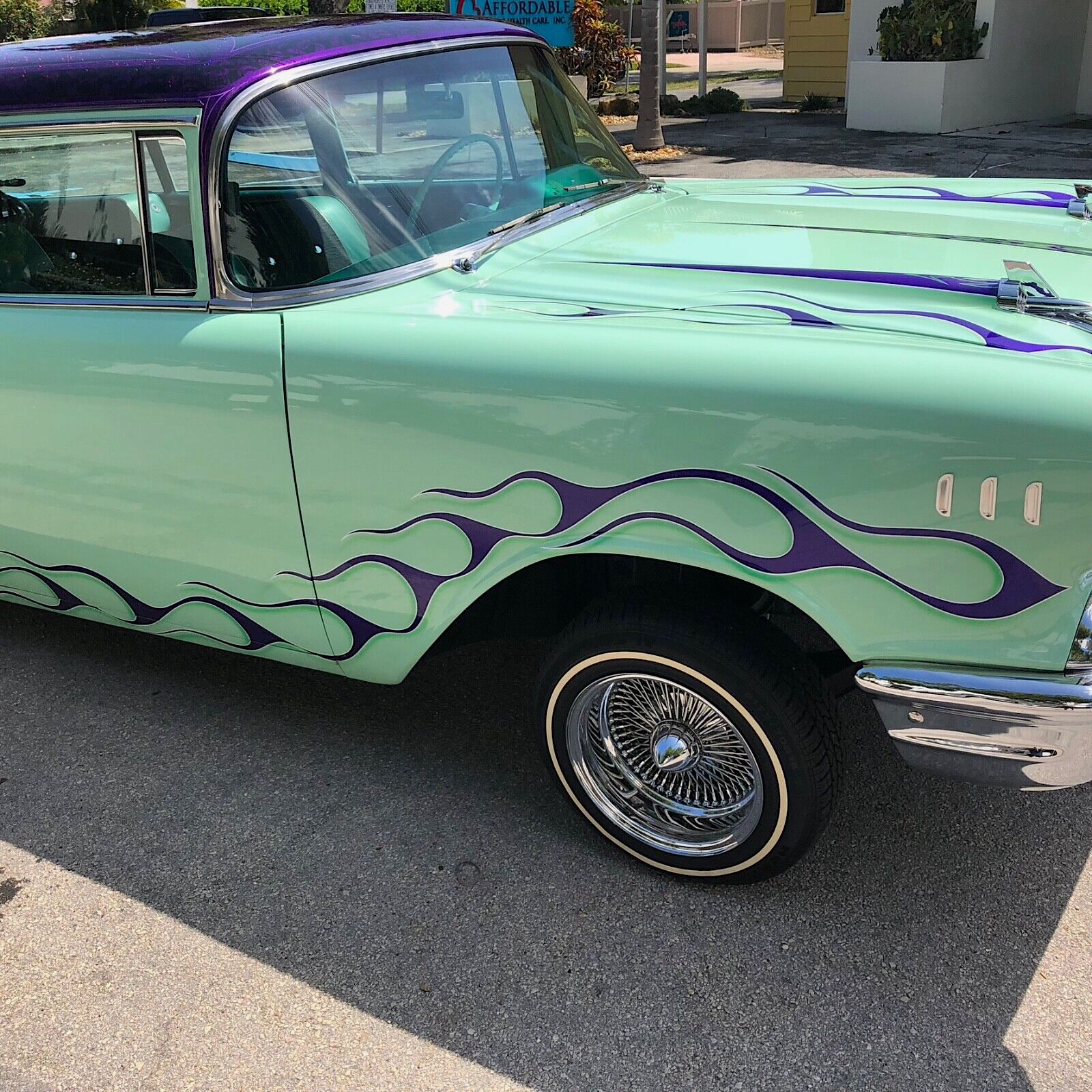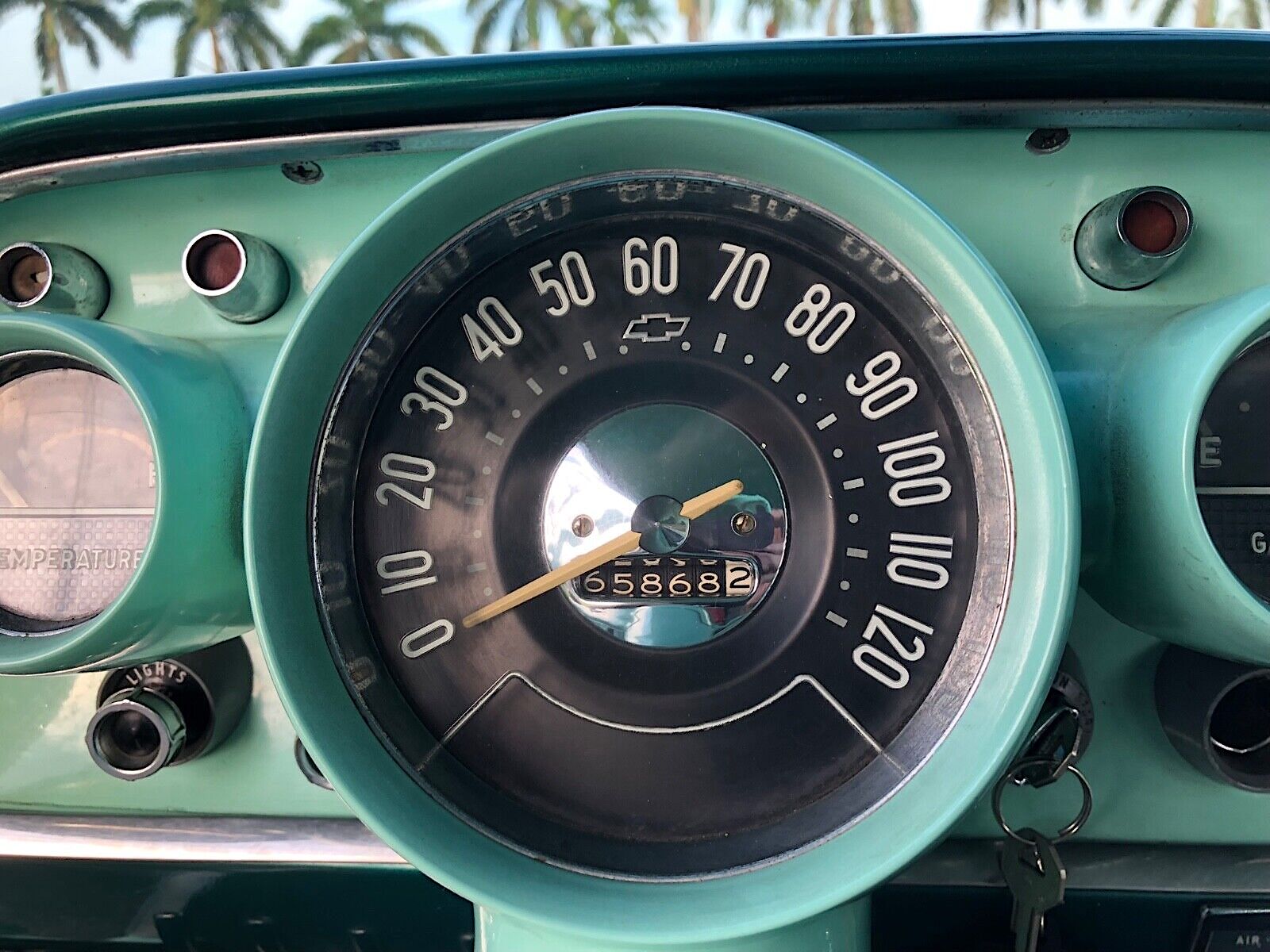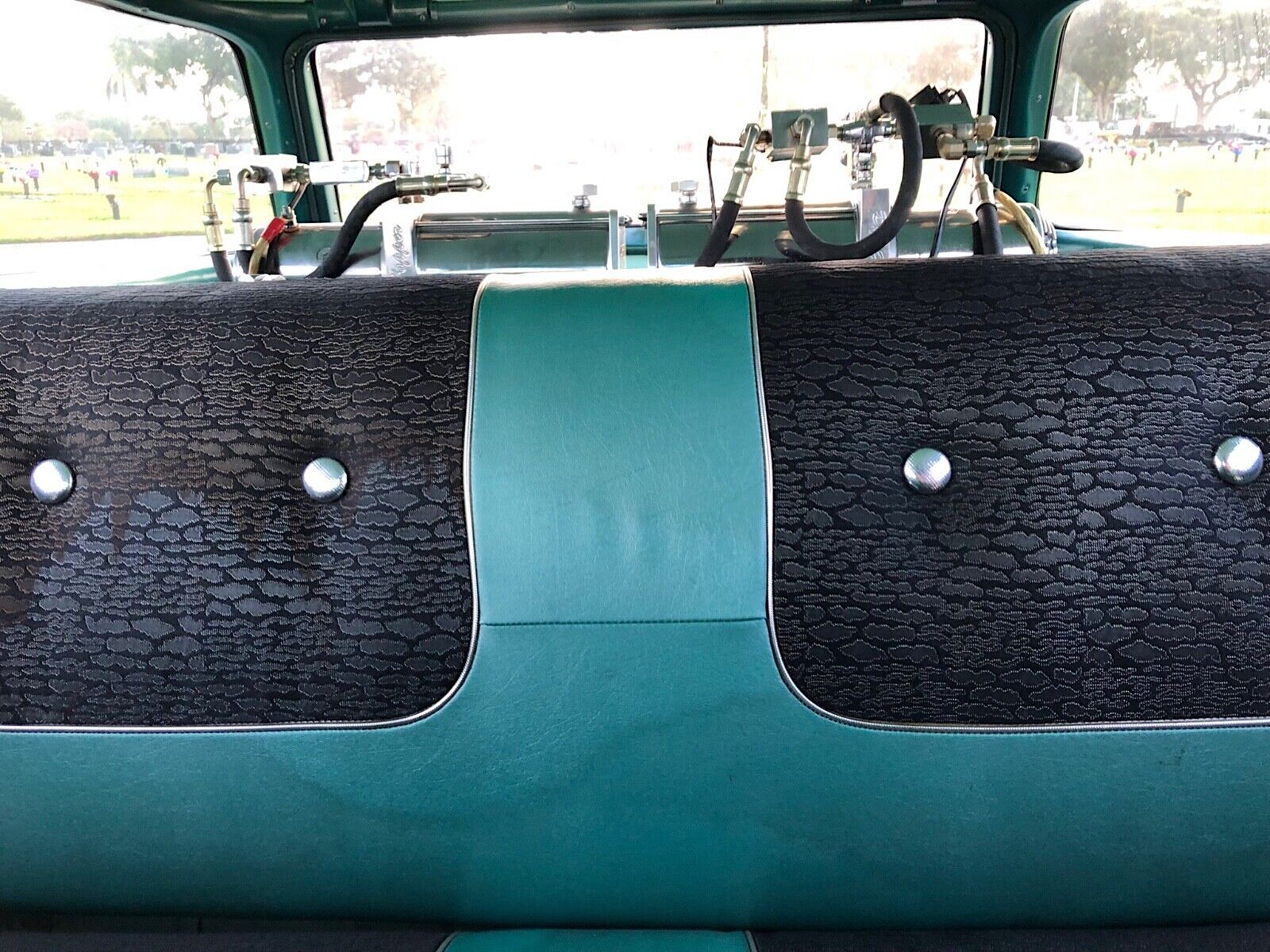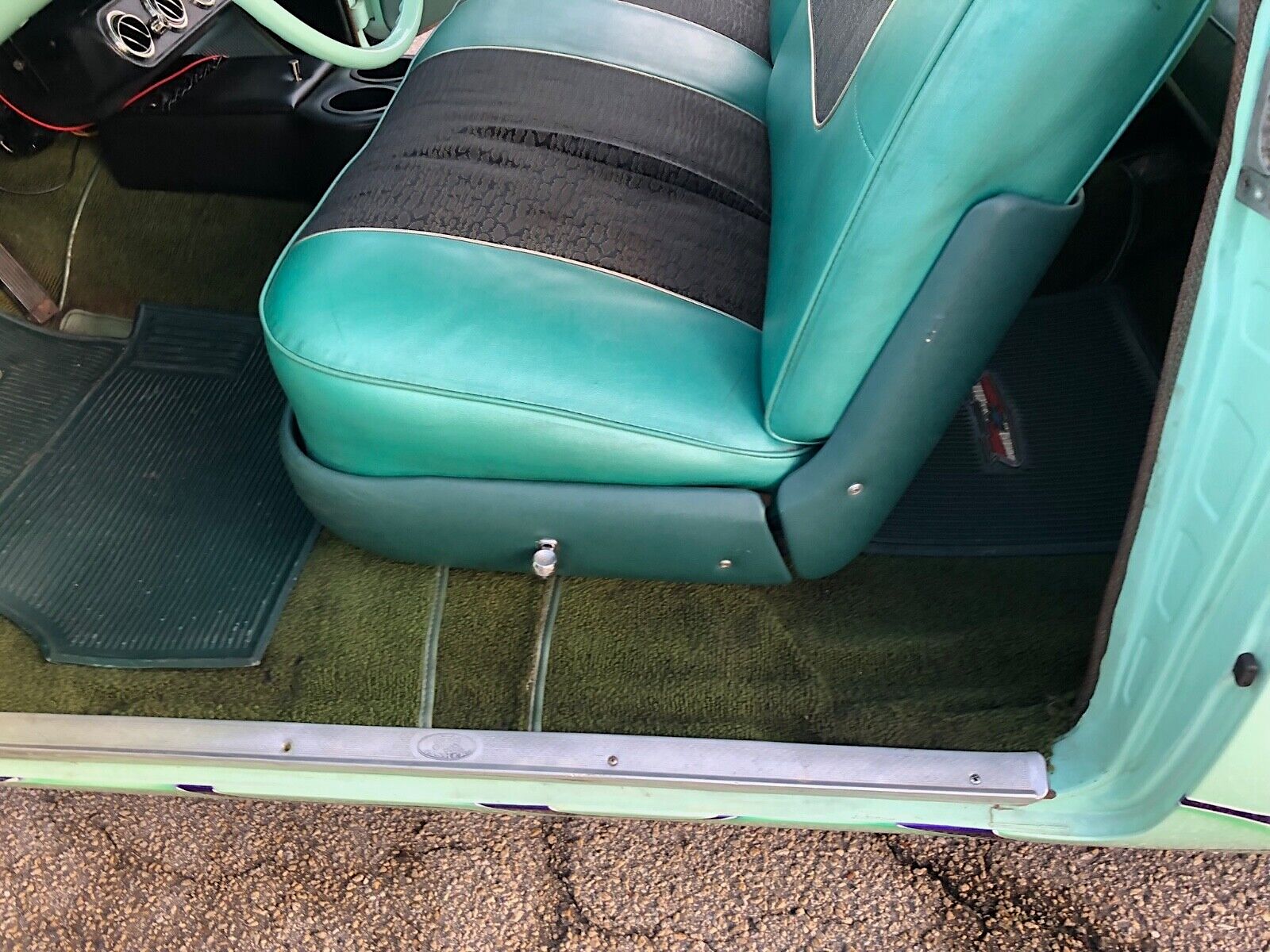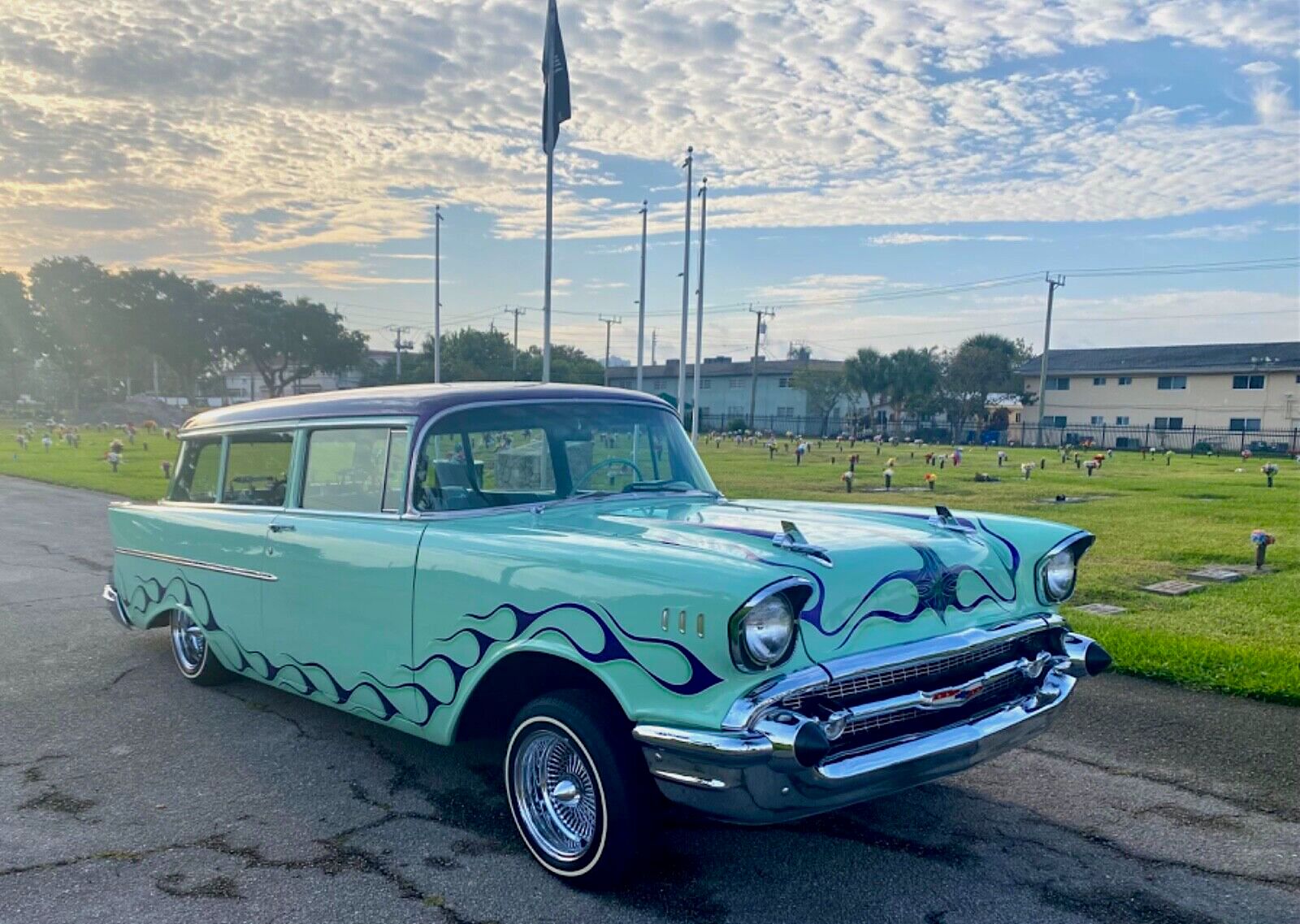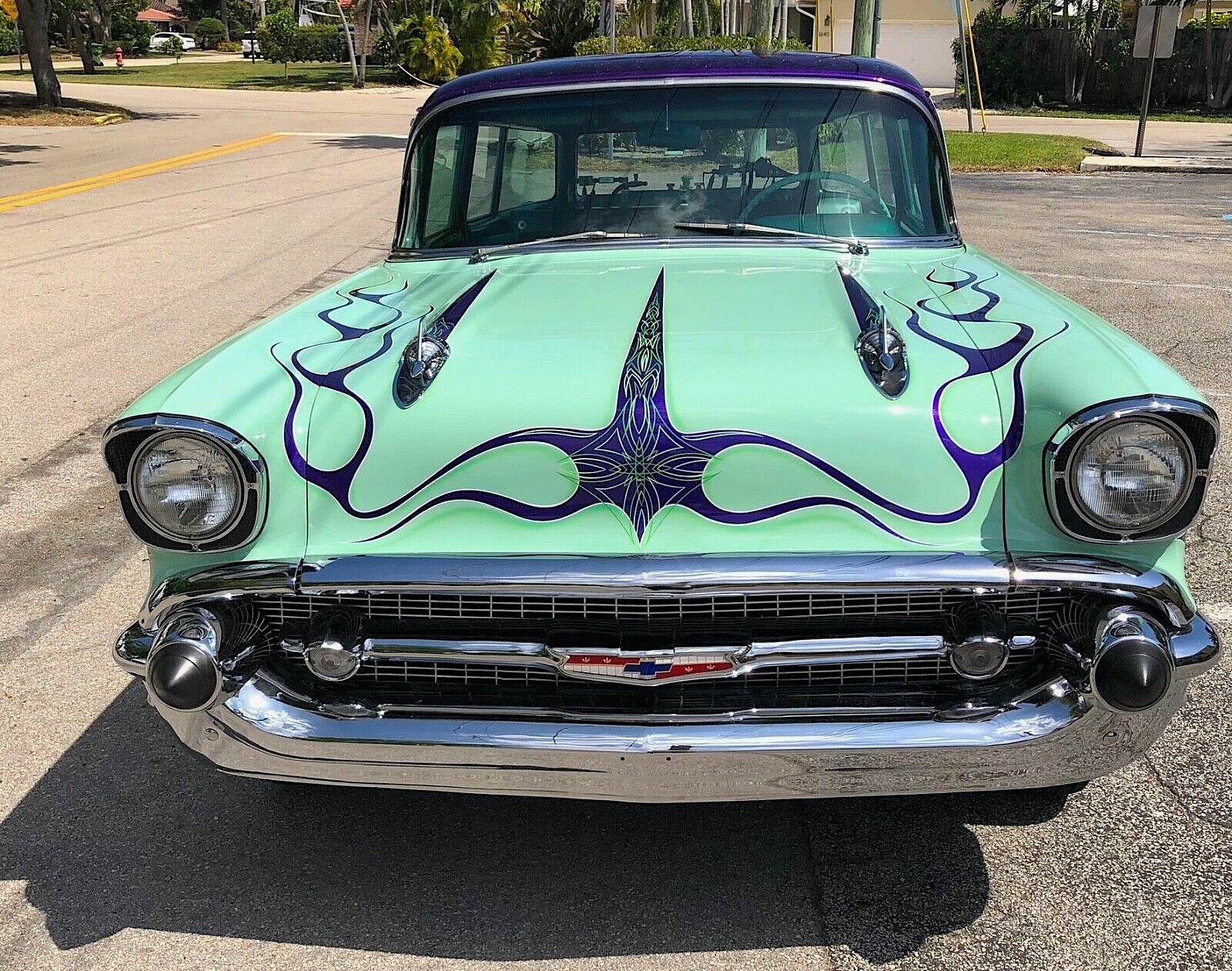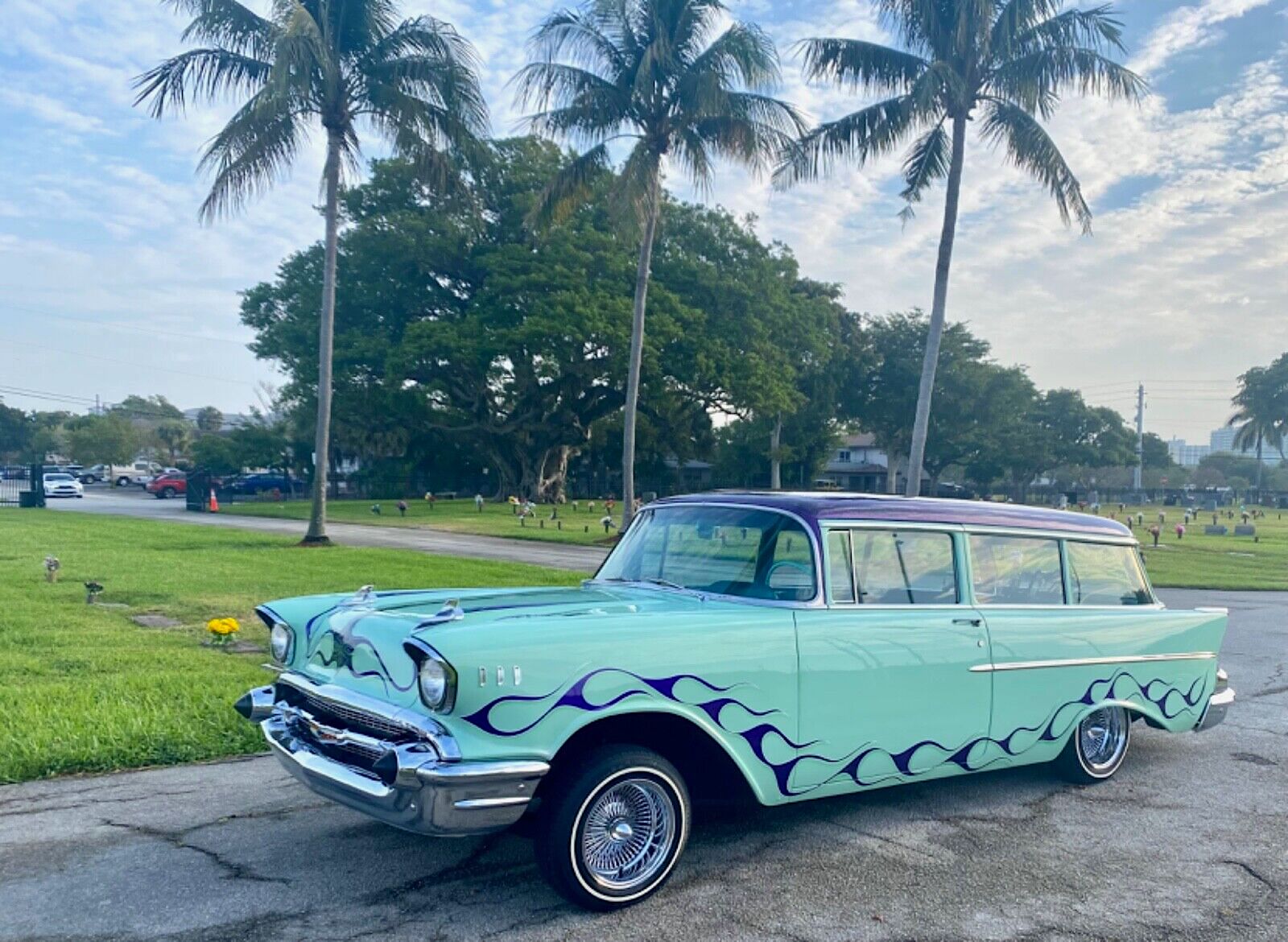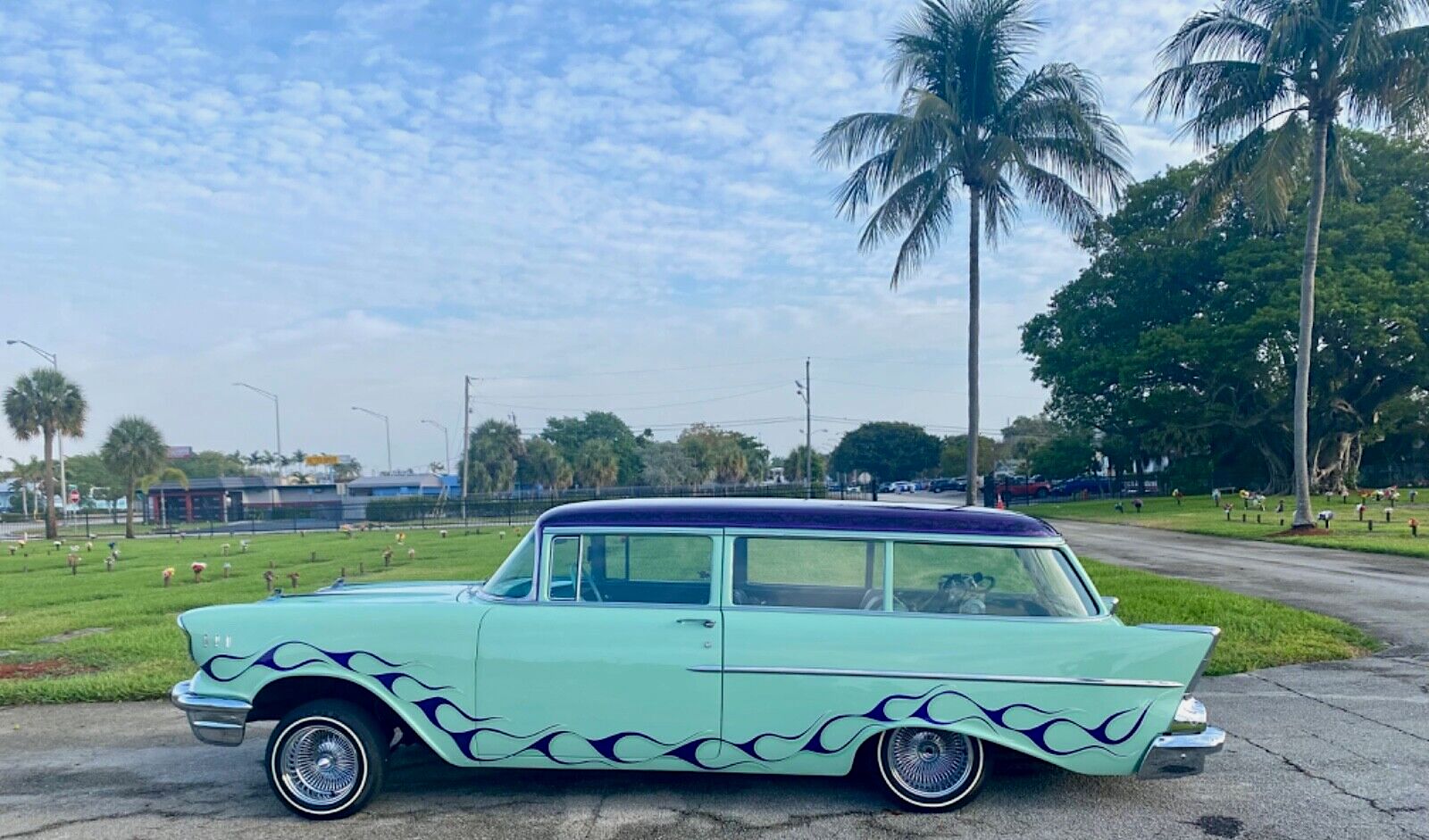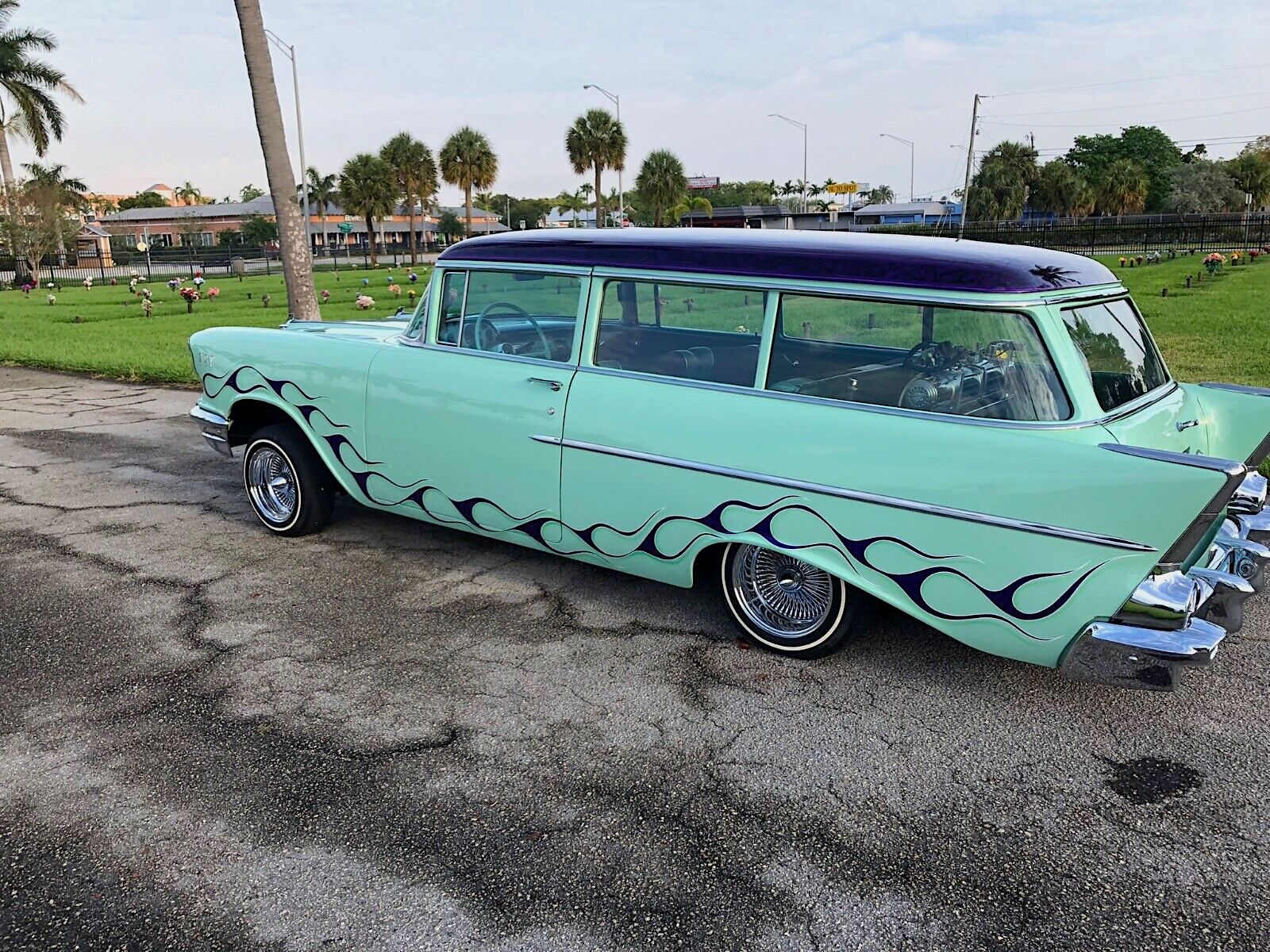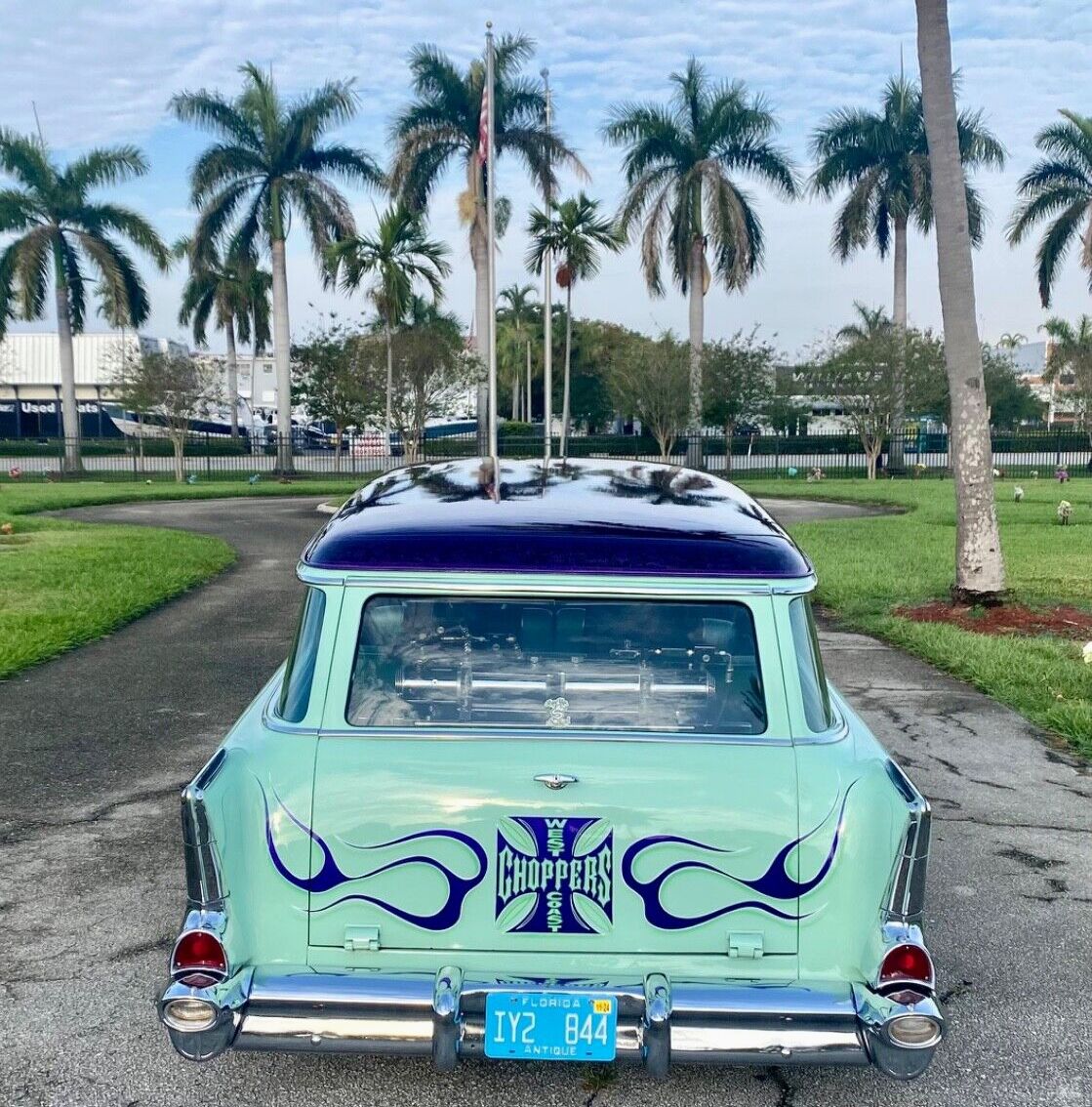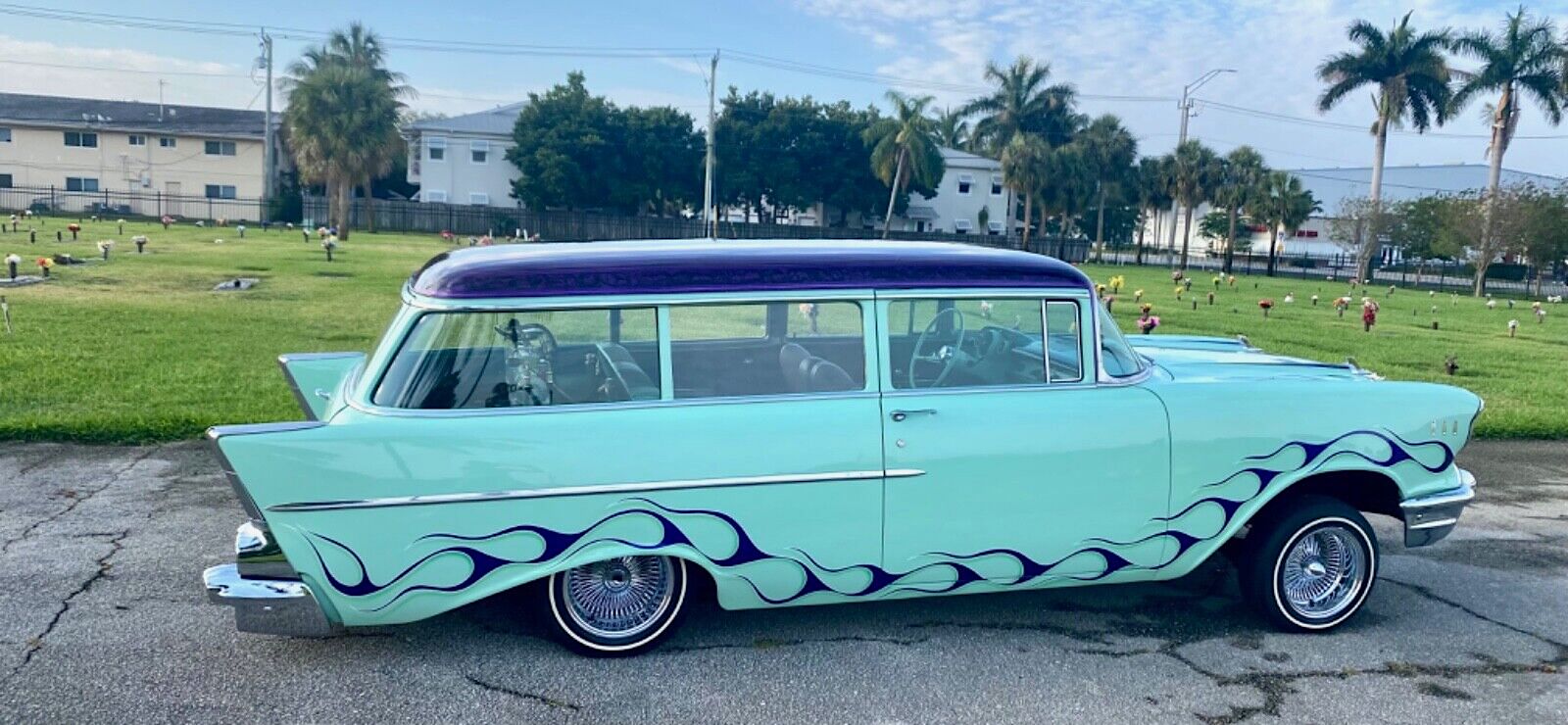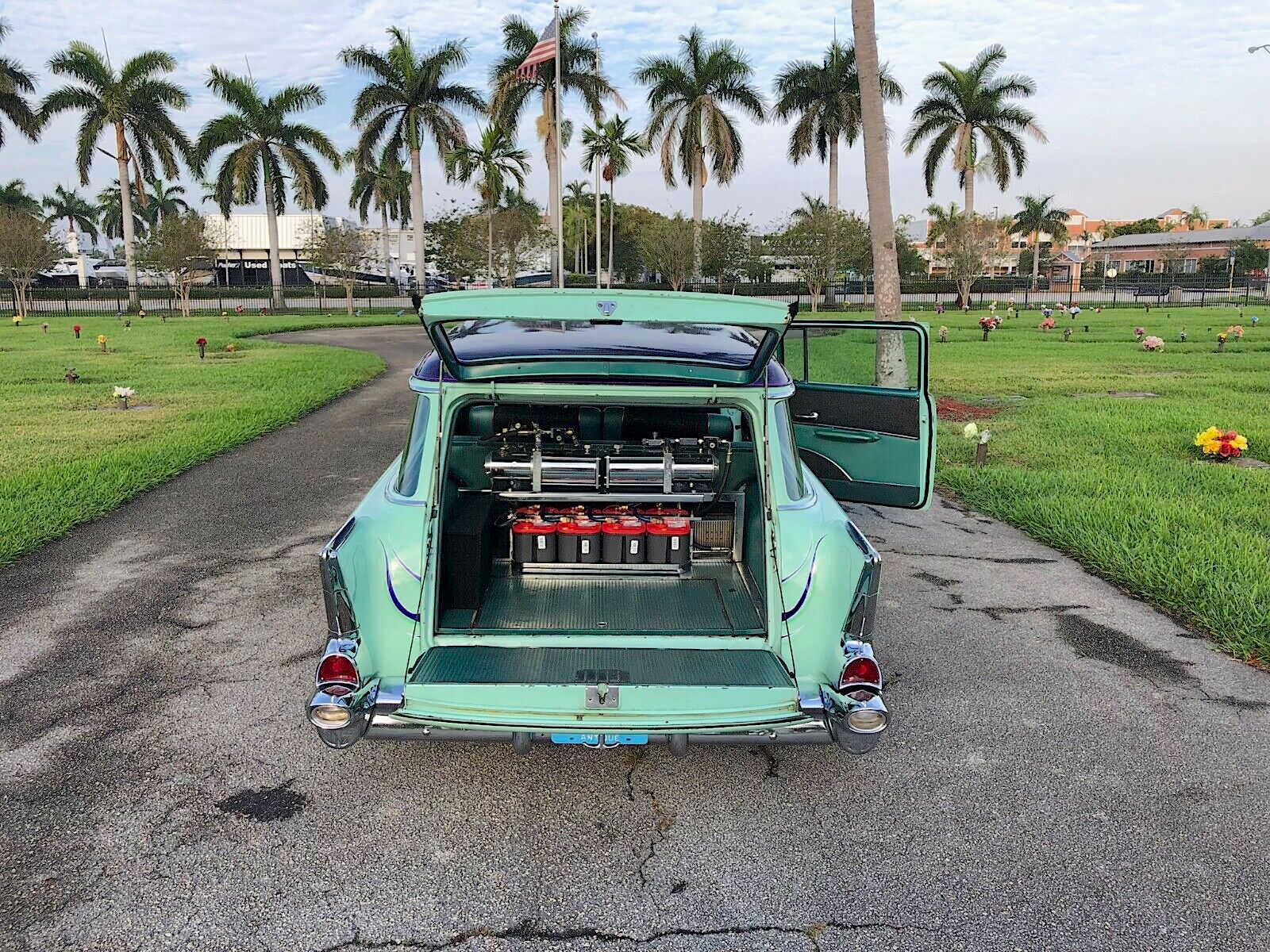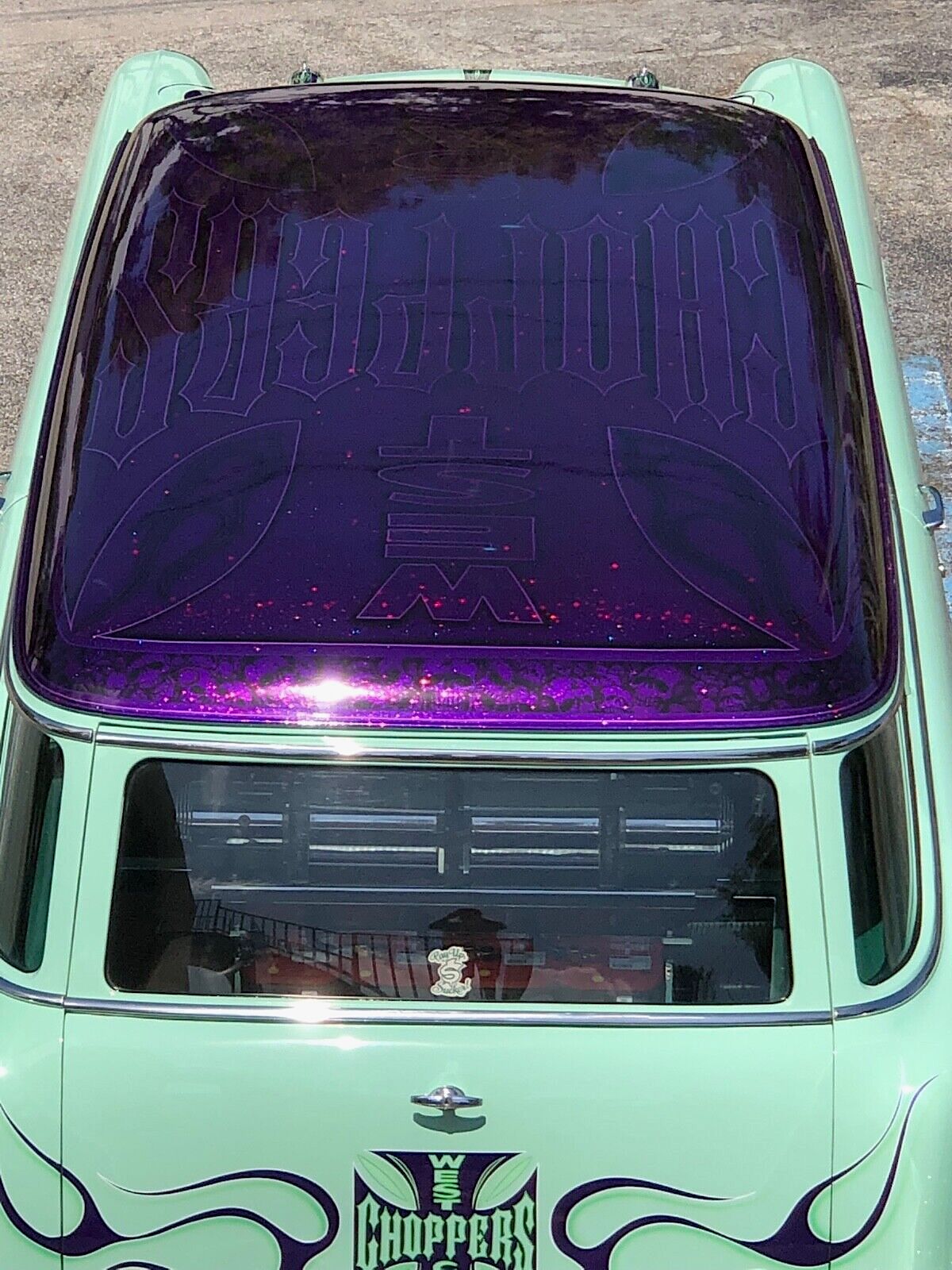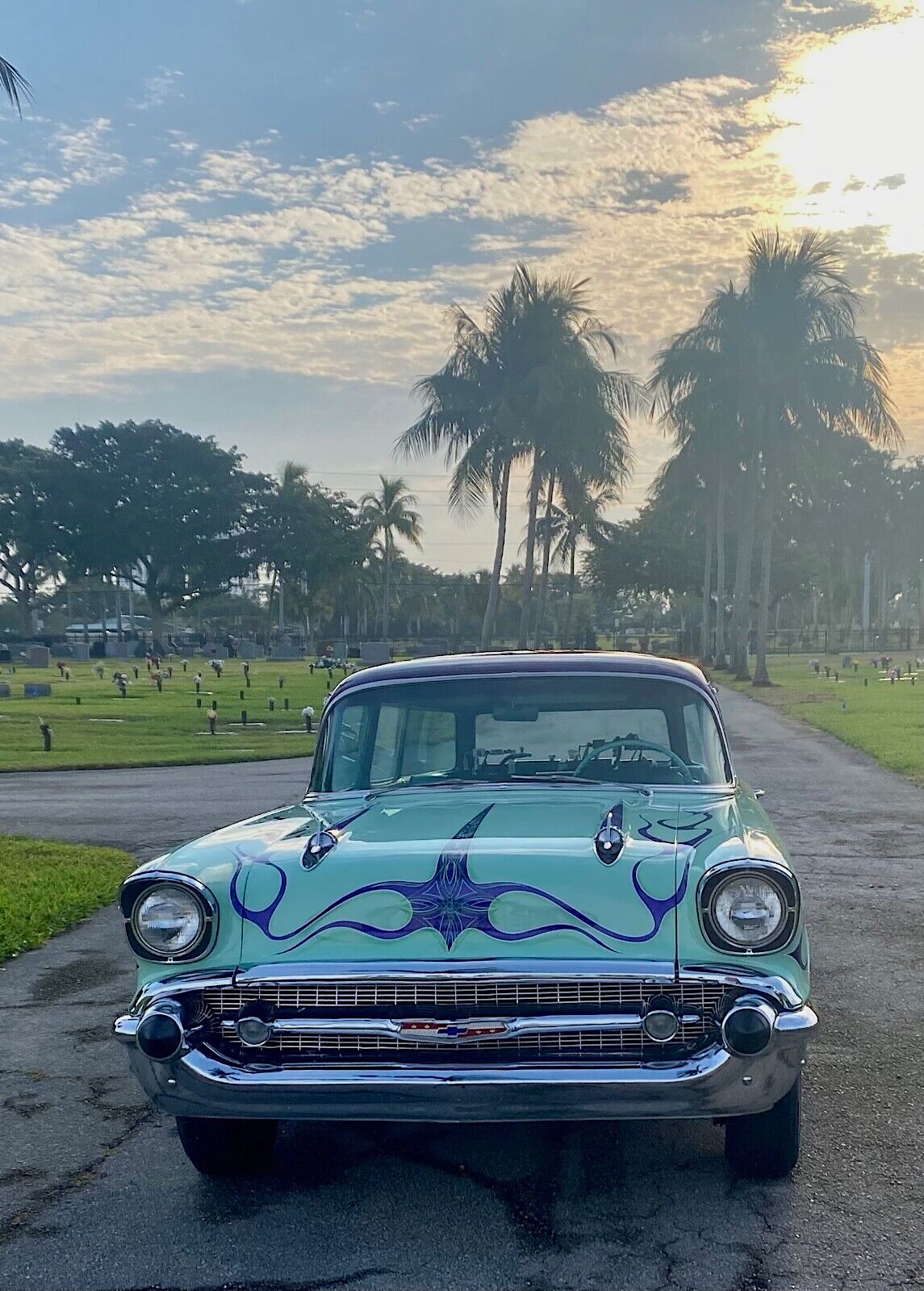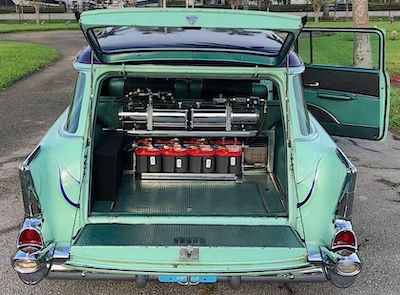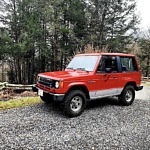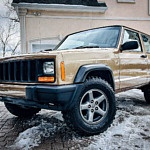Jesse James and the West Coast Choppers crew reimagined this 1957 Chevrolet Nomad Handyman Wagon restomod recently for sale on eBay. The turquoise and purple-flamed beauty is a unique example with a rich die-cast legacy.
Detractors might argue that a two-door station wagon is an impractical, oddball design. But for true believers, the lack of second-row doors makes the layout irresistible.
Read this: Chevy Two-Door Wagons Are the Coolest
Nomad History and Perspective
Chevrolet produced the classic Nomad for three short years, from 1955 to 1957. The “tri-five” Chevy Bel Air, on which the Nomad was based, marked a turning point in American automotive design. Production was limited, with the ’57 Nomad the rarest of all. The Chevy Nomad Club notes these production numbers:
- 1955 – 8,386
- 1956 – 7,886
- 1957 – 6,103
Chevrolet reused the Nomad nameplate for full-size station wagons from 1958 to 1961 and from 1969 to 1972. However, the four-door vehicles lacked the magic of the original models. The tri-five Nomad rolled with an MSRP under $3,000 when new. These days, a well-restored or restomod Nomad can carry a price tag well into the triple digits.
This West Coast Choppers 1957 Chevy Nomad has a Buy-It-Now price of $39,000. That’s well-priced for fans of West Coast Choppers and classic Chevrolets. But you won’t find a big honking engine between the fenders of this purple-flamed beauty.
Why This Chevy Nomad is Different
While the aqua and purple metal flake paint scheme is beautifully executed, it’s admittedly not for everyone. You have to love flames, pinstripes, and West Coast Choppers. That said, this isn’t your typical go-fast V-8 wagon.
The tiny whitewall tires are a tip-off. The propulsion system features a 235 cubic-inch six-cylinder engine and three-speed manual transmission. That flamed paint job may look cool, but there’s no chance for drag-strip glory.
This is a low-rider with full hydraulics. When you witness the four switches next to the steering column, the magic is revealed. Take a stroll out back, and you’ll see the hydraulic system’s air tanks and Optima batteries consuming a significant portion of the cargo space. There’s enough room for groceries but not for carrying huge items. The Handyman’s working days are long past.
Die-Cast Legacy
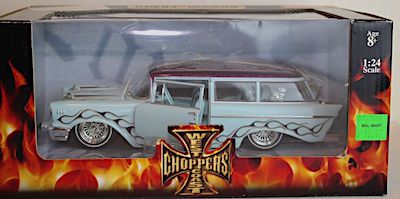
West Coast Choppers 1957 Chevy Nomad – 1:24 die-cast
Seeing a Chevy Nomad on the street is a rare occurrence these days. For many enthusiasts, their first Nomad sighting was the classic 1970 Hot Wheels Nomad Redline. And that’s where the story goes into overdrive.
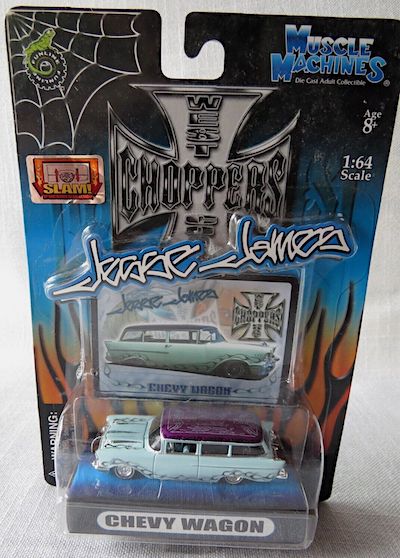
Muscle Machines WCC 1957 Chevy Nomad
Woody and Buzz aren’t in the script, but this is very much a toy story. As it turns out, this West Coast Choppers 1957 Chevy Nomad was immortalized as a die-cast not once but twice. Scroll through the eBay die-cast car listings, and you’ll find a 1:64 Muscle Machines Jesse James “Chevy Wagon” and a 1:24 rendition. But like the late-night TV commercials say, “That’s not all!” The Nomad was also produced as a (wired) remote-control car with hydraulics.
Meanwhile, the full-size, drivable 1957 Chevy Nomad for sale on eBay is a unique opportunity for West Coast Chopper fans with a checkbook. And if you can’t afford the real deal’s asking price, you can always pick up a new trinket for the bookshelf.
Shop now for Chevrolet Nomads
